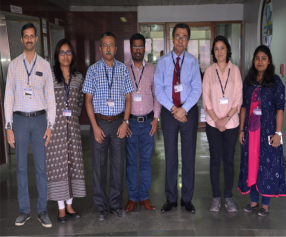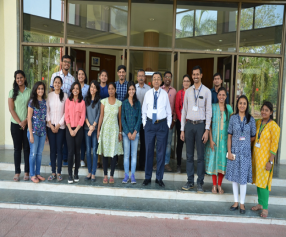
Clinician
- Home
- Dr. Indraneel Mittra
Dr. Indraneel Mittra
Professor
Overview
Professor Indraneel Mittra is the Dr. Ernest Borges Chair in Translational Research and Professor Emeritus, Department of Surgical Oncology at the Tata Memorial Centre / ACTREC. Professor Mittra was earlier Professor of Surgical Oncology and Chief of Surgical Breast Service at TMH and the Head of Division of Laboratory Medicine.
RESEARCH
Professor Mittra's research interests are wide ranging and encompass clinical, laboratory and public health research in cancer as reflected in the diverse nature of his publications. Professor Mittra established the Translational Research Laboratory at ACTREC in the year 2009 and his current research interest lies in the area of biology of extracellular nucleic acids and their role in cancer initiation and metastatis. Professor Mittra's research has led to the discovery that circulating nucleic acids are biologically active molecules and cause damage to DNA of healthy cells by integrating into their genomes. These findings have far-reaching implications for a multitude of human disorders including ageing and cancer. In the field of public health research, Professor Mittra was the founder of PI of one of the largest community-based randomized trials of early detection of breast and cervical cancer using low cost technology approaches funded by a RO1 grant from NIH. The study has established for the first time that visual inspection of the cervix after application of 4% acetic acid can reduce mortality from cervical cancer by 31%. This research finding if applied widely has the potential to prevent nearly 200,000 deaths globally every year. Results of the breast cancer early detection component of this study will be released in 2016.












